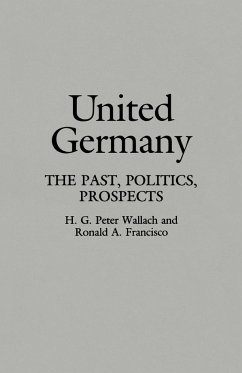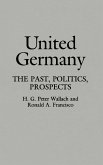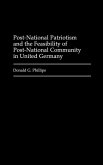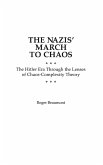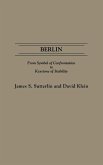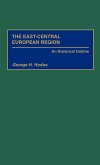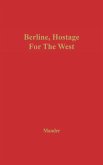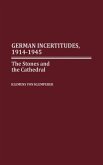This landmark study describes the momentous events from 1989 to 1991 that led up to German unification, explaining how and why they happened as they did, and analyzing them in relation to issues in comparative and international politics and to current theories in political science. Two specialists, one on Western Germany and the other on Eastern Germany, who were observers there during the period, provide the background for understanding trends in German and European politics in the early 1990s. This text is intended for students of European contemporary history, comparative politics, and international relations. This study links the current history of the peaceful revolution in Germany to an analysis of established theories in comparative politics. An introduction provides some historical background prior to 1989. The text goes on to define conditions in the two Germanies in 1989 and then launches into a discussion about the attitudes and expectations in the West as prospects for unity dawned. Careful attention is then given to the East German revolution and the March 1990 elections. Reasons are given for plans for the early unification of the two Germanies. Then the study focuses on the Federal Republic election of December 1990. The impact of these elections and the unification process on Germany and Europe and the world in the near future is discussed at some length. An appendix provides some basic information about Germany's system of government. A selected bibliography points to important primary and secondary sources.
Hinweis: Dieser Artikel kann nur an eine deutsche Lieferadresse ausgeliefert werden.
Hinweis: Dieser Artikel kann nur an eine deutsche Lieferadresse ausgeliefert werden.

